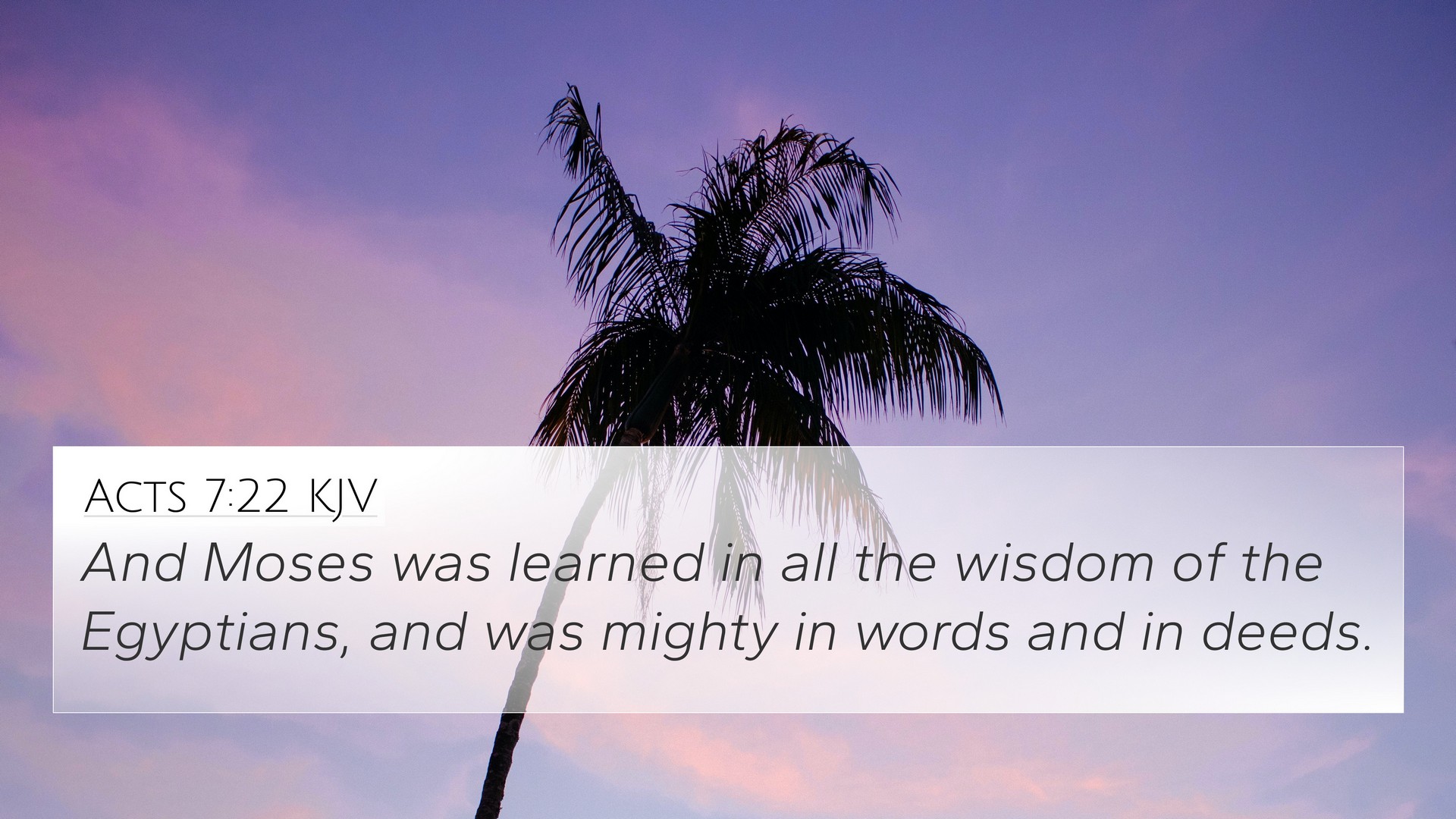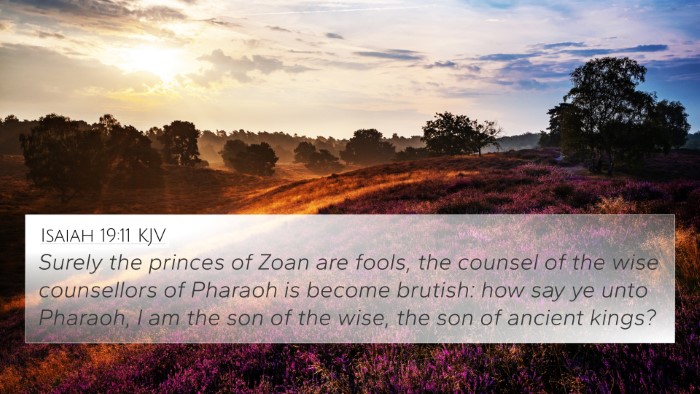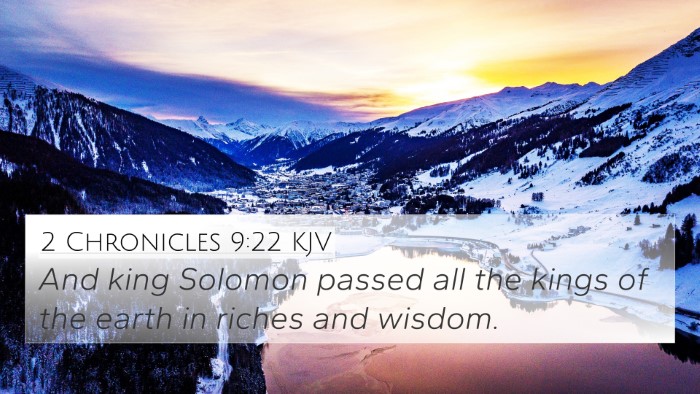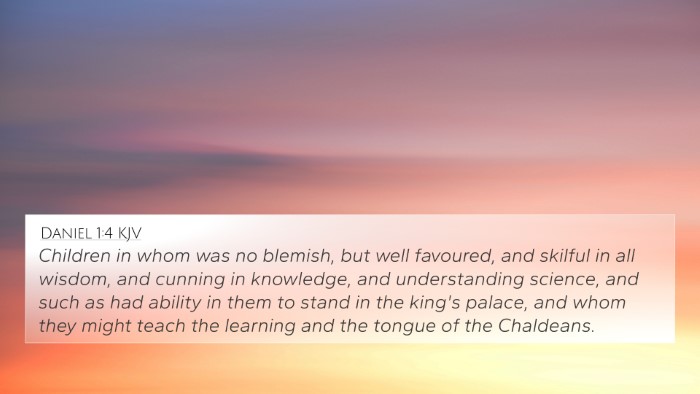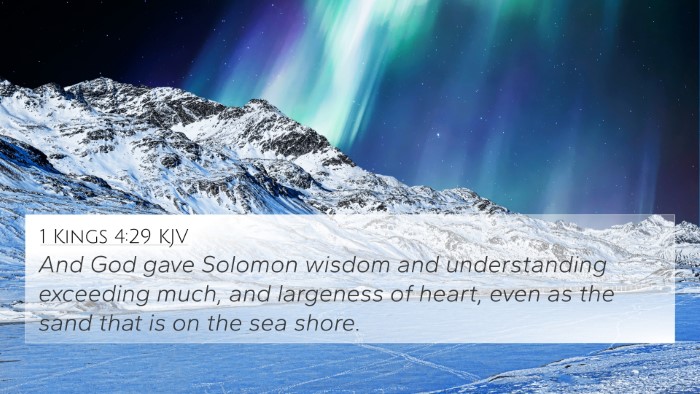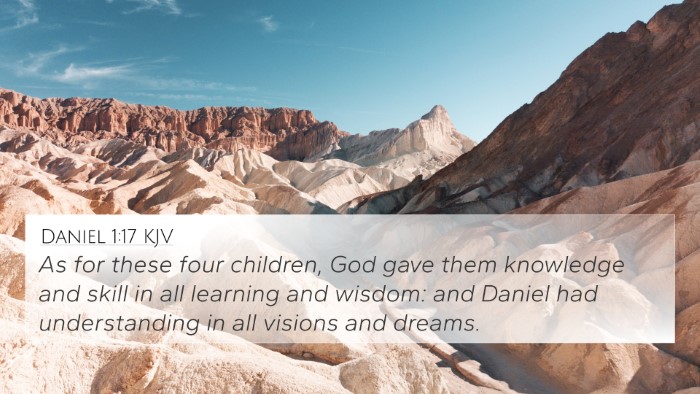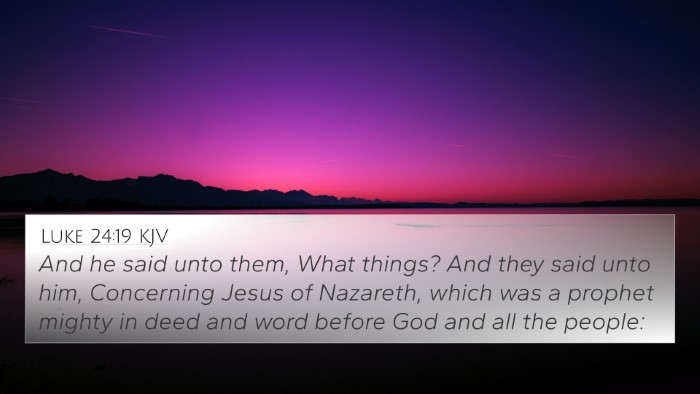Understanding Acts 7:22
Acts 7:22 states:
"And Moses was learned in all the wisdom of the Egyptians, and was mighty in words and in deeds."
This verse introduces Moses, a pivotal figure in the Bible, emphasizing his education and abilities. The insights regarding this verse can be gleaned from various public domain commentaries, which provide a deeper analysis of its significance.
Commentary Insights
-
Matthew Henry's Commentary:
Henry explains that Moses' education in Egypt was crucial not merely for his personal development but as preparation for his future role in leading the Israelites. His wisdom and knowledge equipped him to confront Pharaoh and guide a stubborn nation. This background illustrates the providential preparation God provides for His servants, showcasing that human qualifications can be part of divine plans.
-
Albert Barnes' Notes:
Barnes focuses on the contrast between Moses’ learned background and his humble beginnings as a Hebrew. He emphasizes that despite being educated in a royal court, Moses remained aware of his people’s plight. This awareness fosters a sense of duty that compels him to act on behalf of the oppressed, indicating that true wisdom often comes with a heart inclined toward justice.
-
Adam Clarke's Commentary:
Clarke elaborates on the nature of the wisdom Moses acquired. He points out that this knowledge covered not only languages but also the sciences and arts of the Egyptians. Clarke illustrates how this wisdom was not solely for academic purposes but played a strategic role in God's plan, enabling Moses to communicate effectively with both Egyptians and Israelites.
Bible Verse Cross-References
Acts 7:22 has several related Bible verses that enhance our understanding of Moses and his significance:
- Exodus 2:10 - “And the child grew, and she brought him unto Pharaoh's daughter, and he became her son.” This verse highlights the beginning of Moses’ privileged upbringing in the Egyptian court.
- Hebrews 11:24-26 - “By faith Moses, when he was come to years, refused to be called the son of Pharaoh's daughter.” These verses illustrate Moses’ choices motivated by faith, showing his ultimate allegiance to his people.
- Exodus 3:10 - “Come now therefore, and I will send thee unto Pharaoh, that thou mayest bring forth my people the children of Israel out of Egypt.” This highlights Moses’ call to action where his wisdom becomes a tool for God’s purpose.
- Acts 7:25 - “For he supposed his brethren would have understood how that God by his hand would deliver them: but they understood not.” This emphasizes Moses’ initial misunderstanding and the complexity of his mission.
- Exodus 4:10 - “And Moses said unto the Lord, O my Lord, I am not eloquent, neither heretofore, nor since thou hast spoken unto thy servant: but I am slow of speech, and of a slow tongue.” Here, Moses expresses his doubts despite his earlier education and abilities, showcasing the tension between human capability and divine calling.
- Psalm 77:20 - “Thou leddest thy people like a flock by the hand of Moses and Aaron.” This acknowledges Moses’ leadership and the divine guidance he offers to the Israelites.
- 1 Corinthians 10:2 - “And were all baptized unto Moses in the cloud and in the sea.” This verse connects Moses to the New Testament understanding of spiritual leadership and identity.
Thematic Connections in Context
The themes surrounding Acts 7:22 can be further explored, revealing profound connections across different books of the Bible:
-
Leadership and Education:
The preparation of leaders through education is a recurring theme. Moses’ education correlates with other leaders like Solomon (1 Kings 4:29), who was also renowned for wisdom.
-
God’s Sovereignty in History:
Each instance where God raises leaders reflects His overarching plan. The stories of Esther and David also demonstrate God’s hand in the lives of those who may not seem to fit conventional roles (Esther 4:14, 1 Samuel 16).
-
Faith in Action:
Moses’ life mirrors the call to faith faced by believers today (Hebrews 11:1), considering the various trials that accompany leadership.
Insights for Bible Study
Using cross-references can enrich one’s understanding of scripture significantly. Here are some tools and methods:
- Bible Concordance: A concordance can help locate key themes and similar verses, allowing for a deeper dive into specific topics.
- Pursue Comparative Bible Verse Analysis: Tracking themes and narratives through the Bible invites a holistic understanding of biblical texts.
- Utilize Resources for Bible Cross-Referencing: Many study Bibles provide valuable insights into related verses, which can be especially helpful for sermon preparation and personal studies.
- Incorporate Thematic Studies: Observing how different verses connect thematically across both Testaments can illuminate the unity of God’s message.
Conclusion
Acts 7:22 provides a snapshot into the life of Moses, showcasing the blend of human wisdom and divine calling. By utilizing cross-references and thematic studies, readers can uncover the depth of scripture, facilitating stronger interpretations and connections in their personal or communal studies.
